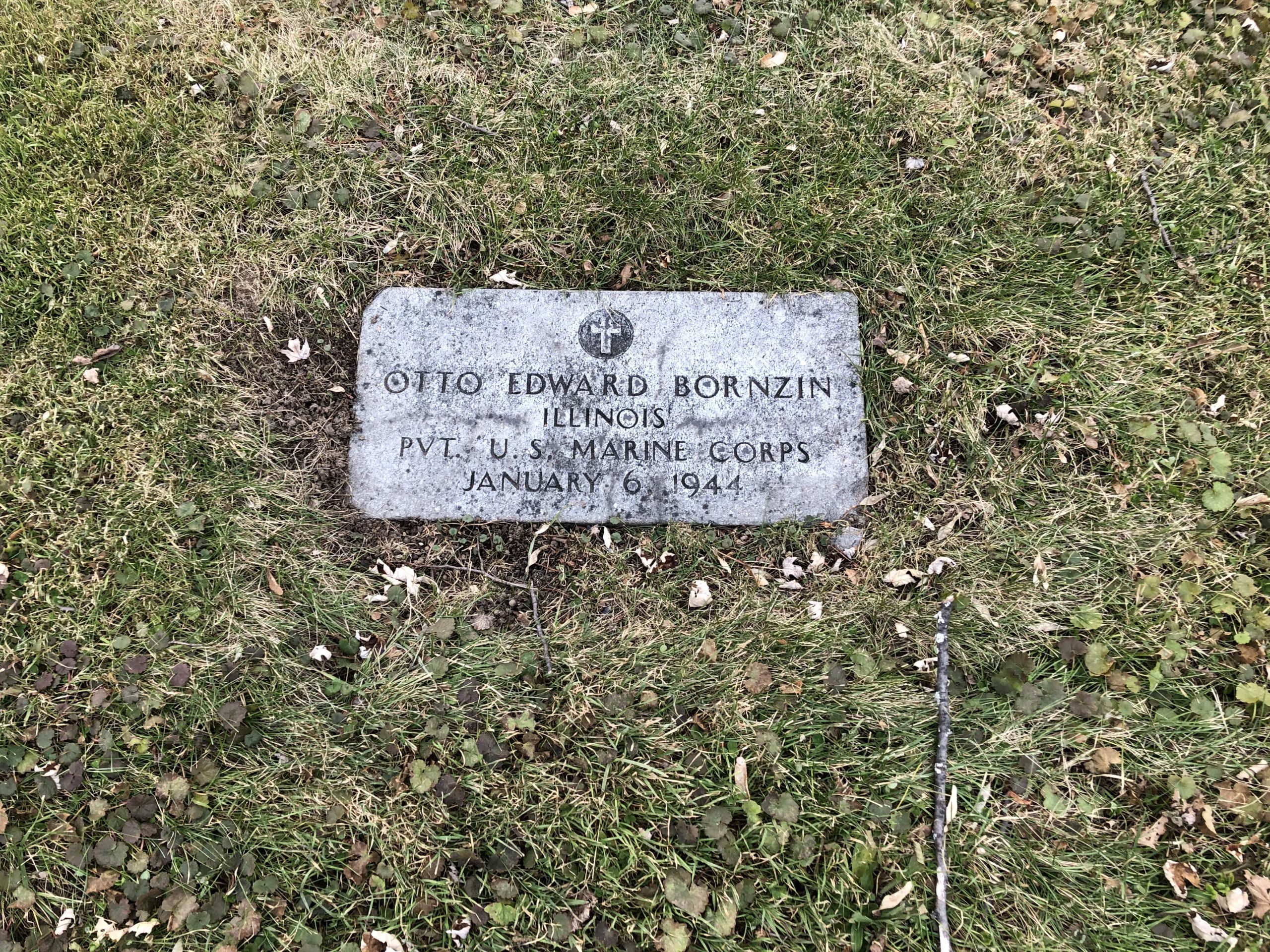15 November 1889 – 6 January 1944
Otto was the second youngest and youngest son of Herman and Augusta Sieloff Bornzin, German immigrants who came to the US after their older children were born. Otto and his nearest-older brother and younger sister, however, were born in Chicago.
In 1910, Otto was still living at home and was working as a canoe-maker at a foundry (?) but in March of the following year, he enlisted in the army. It’s unclear from the records how long he served or what he did. Later the same year, his father passed away. His mother remarried at the age of 60 in 1913, but it’s unclear when she passed away.
At some point, Otto returned to Chicago, but at the age of 27 and less than a week after the US declared war on Germany, he reenlisted, this time in the Marines.
There are a couple dozen muster roll listings tracking his movements to various locations around the US — New York at the naval yard; Radio Station at New Brunswick, New Jersey; Louisiana; California; Florida — so it doesn’t appear he was ever sent overseas. There isn’t much detail attached to his name on this records (which is good as in most cases details mean the person was in trouble), but I would hazard a guess that he was in some kind of specialist or support unit.
It’s unclear and there are no census records for Otto for 1930 or 1940 that I can find, but it appears from some contextual information that after the war, he may have worked for a time as an engineer so it’s possible his military work related to this.
He was honorably discharged at the end of the war, serving for the full duration, but seems to have incurred some long-term injuries or health impacts that led to him spending four months at the National Home for Disabled Volunteer Soldiers in Milwaukee at the end of 1932 and early 1933. The paperwork lists blindness in his right eye and a missing finger but no other details as to why either of these issues should result in four months of hospitalization. If it was more like the VA is now, too, he might have incurred the eye injury in civilian life but been best able to access healthcare through his military service.
In 1942 on his World War II draft card, he indicated that he was living on his soldiers pension due to medical disability. He never married, and he lists is older brother Herman as his next of kin.
Whatever his ultimate health issues and whether or not they were the cause of his death, Otto passed away less than two years later at the age of just 54.
His brother submitted the paperwork for the military headstone a few weeks later, and it was approved in May of the same year and shipped to Concordia for placement.
RIP Private Bornzin and thank you for your service.
Please visit my Instagram for any questions or comments on this post!
